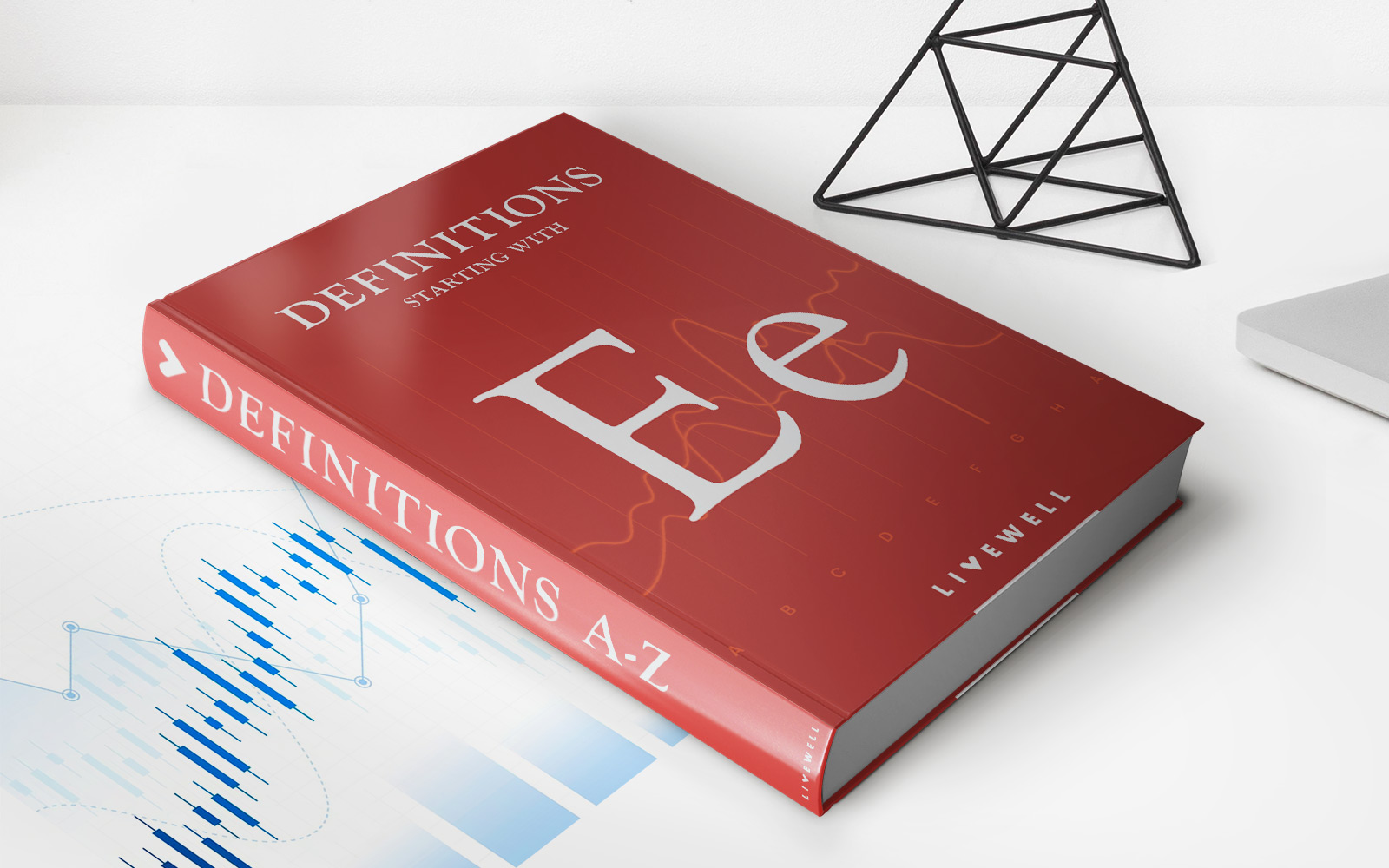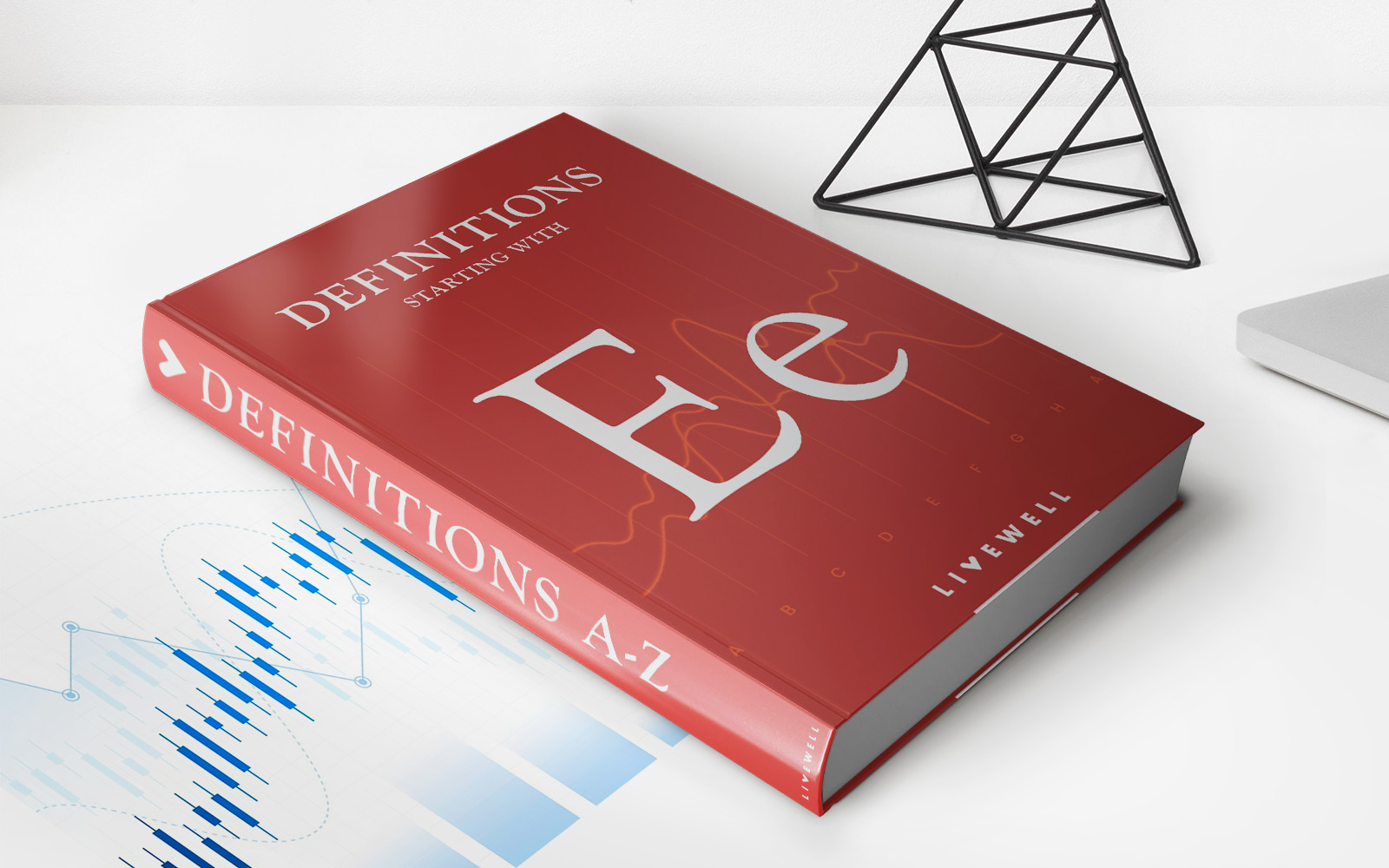

Finance
Why Would An Employer Check Your Credit
Published: January 10, 2024
Understand why employers may check your credit and how it relates to finance, ensuring you're prepared for potential scrutiny.
(Many of the links in this article redirect to a specific reviewed product. Your purchase of these products through affiliate links helps to generate commission for LiveWell, at no extra cost. Learn more)
Table of Contents
- Introduction
- Reasons for Employer Credit Checks
- Screening for Financial Stability
- Assessing Responsibility and Trustworthiness
- Evaluating Potential Workplace Risks
- Legal Considerations and Compliance
- Privacy and Fair Credit Reporting Act (FCRA)
- Pros and Cons of Employer Credit Checks
- Potential Impact on Job Applicants
- Steps to Prepare for an Employer Credit Check
- Conclusion
Introduction
When applying for a job, it’s not uncommon for employers to conduct thorough background checks on prospective candidates. While these checks typically involve verifying educational qualifications, employment history, and references, some employers also choose to examine an applicant’s credit history. This practice, known as an employer credit check, has become a topic of debate in recent years.
An employer credit check involves reviewing an individual’s credit report, which provides information about their financial history, including credit card payments, loans, and bankruptcies. The purpose of this check is to assess a candidate’s financial responsibility and trustworthiness, as well as to evaluate potential workplace risks.
Employers may argue that conducting credit checks is necessary to protect their business interests and ensure they are hiring reliable employees. However, critics argue that such checks can unfairly disadvantage certain applicants and may not be an accurate indicator of job performance.
In this article, we will explore the reasons why employers conduct credit checks, the potential impact on job applicants, and steps you can take to prepare for an employer credit check. Let’s delve deeper into this increasingly common hiring practice and the implications it may have on job seekers.
Reasons for Employer Credit Checks
Employers have various reasons for conducting credit checks as part of their hiring process. While it may seem intrusive, understanding these reasons can provide insight into why employers consider an applicant’s credit history when making hiring decisions.
1. Screening for Financial Stability: One of the primary reasons employers conduct credit checks is to assess a candidate’s financial stability. They may argue that employees who are struggling with significant debt or have a history of financial mismanagement may be more prone to financial stress and potential unethical behavior. By examining an applicant’s credit report, employers can gauge their ability to handle financial responsibilities and make informed judgments about their level of fiscal accountability.
2. Assessing Responsibility and Trustworthiness: Employers see credit checks as a way to evaluate a candidate’s level of responsibility and trustworthiness. They believe that individuals who have demonstrated good financial habits and a strong credit history are more likely to be responsible and trustworthy in their professional lives as well. Conversely, a poor credit history, characterized by delinquencies or defaults on payments, may raise concerns about an applicant’s ability to manage their personal life, and by extension, their work-life responsibilities.
3. Evaluating Potential Workplace Risks: Some positions require a higher level of trust and responsibility, especially those involving finances, sensitive information, or access to company funds. Employers may argue that credit checks can uncover potential red flags, such as a history of financial fraud or significant debt, which may increase the risk of an employee engaging in unethical behavior or even theft. By conducting credit checks, employers aim to mitigate the risk of hiring individuals who could pose a threat to the company’s financial security.
4. Legal Considerations and Compliance: Certain industries, such as banking, financial services, or government agencies, may be legally required to perform credit checks as part of the hiring process. This is to ensure compliance with industry regulations and safeguard the organization against potential liabilities. Employers operating in these sectors argue that credit checks are necessary to meet legal obligations and maintain the integrity of their operations.
While these are some of the main reasons employers cite for conducting credit checks, it is important to note that the practice is not without controversy. Critics argue that such checks can result in discrimination and unfairly disadvantage certain groups, as there may be no direct correlation between an individual’s credit history and their job performance. Additionally, some states have placed restrictions on employer credit checks to protect job seekers from unfair hiring practices.
Screening for Financial Stability
One of the primary reasons employers conduct credit checks is to assess a candidate’s financial stability. By examining an applicant’s credit report, employers aim to gain insights into their financial habits and determine if they pose any potential risks to the company.
Financial Responsibility: Employers often view an individual’s financial stability as an indicator of their overall responsibility. They believe that employees who are financially sound are more likely to be reliable, organized, and accountable in their professional lives. A strong credit history, characterized by on-time payments, low credit utilization, and a healthy debt-to-income ratio, can demonstrate an individual’s ability to manage their finances responsibly.
Debt Management: Credit checks can provide employers with valuable information about an applicant’s debt management skills. Excessive debt or a history of late payments may raise concerns about an employee’s ability to handle financial pressures or make sound decisions under stress. This is particularly relevant for positions that involve handling company finances or making important financial decisions.
Risk Assessment: Employers consider credit checks a useful tool for evaluating potential workplace risks. A poor credit history, such as multiple accounts in collections or a bankruptcy filing, could be an indication of financial distress or irresponsible behavior. In some cases, employers may worry that individuals who are experiencing financial difficulties may be more susceptible to fraudulent activities or unethical behavior.
Customer-Facing Roles: For positions that involve interacting with customers or handling financial transactions, employers may argue that assessing an applicant’s financial stability is especially crucial. They believe that employees with strong credit histories are more likely to handle financial transactions ethically and responsibly, earning the trust and loyalty of customers.
Industry-Specific Factors: In certain industries, such as banking, finance, or accounting, employers may prioritize candidates with excellent credit histories. These industries often require employees to handle sensitive financial information and make critical financial decisions, making it imperative to assess an individual’s financial stability and responsibility.
While employers may have valid reasons for screening applicants for financial stability, it is important to recognize that credit checks may not always provide a complete picture of a candidate’s abilities or character. Financial difficulties can arise due to various circumstances, including medical emergencies, job loss, or family crises, which may not accurately reflect a person’s skills or integrity in the workplace.
It is crucial for employers to strike a balance between utilizing credit checks as a hiring tool and considering the individual circumstances and qualifications of each candidate. Additionally, it is essential for job seekers to understand their rights and be aware of any applicable legal restrictions surrounding employer credit checks.
Assessing Responsibility and Trustworthiness
Another key reason employers conduct credit checks is to assess a candidate’s level of responsibility and trustworthiness. By reviewing an applicant’s credit history, employers believe they can gain valuable insights into their financial management skills and determine if they can be trusted with important responsibilities in the workplace.
Financial Management Skills: Employers often equate good financial management skills with overall responsibility. They believe that individuals who demonstrate responsible financial behavior, such as consistently paying bills on time, managing credit responsibly, and avoiding excessive debt, are more likely to exhibit similar responsible behaviors in their professional lives. Employers value candidates who can handle their personal finances well and apply the same level of responsibility to their job.
Trustworthiness: Employers view credit checks as a way to gauge a candidate’s trustworthiness. They argue that employees who are financially responsible and demonstrate integrity in managing their finances are more likely to be trustworthy in the workplace. The assumption is that if someone is responsible with their own financial obligations, they are also likely to be reliable and ethical in their professional commitments.
Fiscal Accountability: In positions that involve handling company finances or making financial decisions, employers consider credit checks vital in assessing a candidate’s fiscal accountability. A strong credit history, with a track record of responsibly managing credit and paying off debts, may provide assurance to an employer that the candidate can be trusted with financial responsibilities and won’t engage in fraudulent activities or misuse company funds.
Attention to Detail: Employers may argue that credit checks help them evaluate a candidate’s attention to detail. By examining an applicant’s credit report, employers can see if there are any inconsistencies or discrepancies in their financial history. Candidates who take the time to review and resolve errors in their credit report may be viewed as detail-oriented and thorough, qualities that employers value in many job roles.
Industry-Specific Considerations: In certain industries, such as finance, accounting, or roles that require access to sensitive financial information, employers prioritize assessing a candidate’s responsibility and trustworthiness. Jobs that involve managing large amounts of money or handling confidential financial data necessitate a high level of integrity and accountability.
While credit checks can provide insights into a candidate’s responsibility and trustworthiness, it is important to note that they are not foolproof indicators. Financial difficulties or negative credit history may arise from circumstances beyond a person’s control, such as medical emergencies or unexpected job loss. Employers should consider other factors alongside credit history to form a more comprehensive assessment of a candidate’s character and capabilities.
Job seekers should be prepared to address any concerns an employer may have regarding their credit history. Being transparent about any financial challenges they have faced and demonstrating efforts to rectify the situation can help alleviate potential concerns and showcase their overall commitment to personal and professional responsibility.
Evaluating Potential Workplace Risks
Employers prioritize the safety and security of their workplace, which includes assessing potential risks associated with hiring a candidate. Credit checks can help employers evaluate if an applicant presents any potential risks that could harm the organization, its employees, or its customers.
Financial Distress: Credit checks can uncover signs of financial distress, such as significant debt or a history of missed payments. Employers may be concerned that individuals dealing with financial difficulties may be more susceptible to unethical behavior, such as fraud or theft, in an attempt to alleviate their financial strain. By conducting credit checks, employers aim to mitigate the risk of hiring someone who may be desperate for money or have a higher likelihood of engaging in fraudulent activities.
Material Risks: Certain positions may involve access to sensitive financial information, handling company funds, or performing financial transactions on behalf of the organization. Employers argue that credit checks can help identify candidates who pose material risks due to their financial situation. For example, individuals with excessive debt or a history of bankruptcy may be seen as more vulnerable to financial pressures and potentially more likely to engage in illegal or unethical practices to address their financial needs.
Trustworthiness: Employers view credit checks as a tool to assess a candidate’s trustworthiness, particularly in positions where personal integrity is critical. Roles that involve handling cash, confidential information, or making financial decisions on behalf of the company require a high level of trust. Employers believe that an individual with a solid credit history is more likely to be honest, reliable, and uphold the organization’s values and ethics.
Workplace Security: From an employer’s perspective, financial stability can be an indicator of overall stability. High levels of personal financial stress can impact an employee’s performance, mental health, and focus in the workplace. Employers argue that by evaluating a candidate’s credit history, they can identify whether an individual’s financial situation may create distractions or cause distress that could potentially compromise their performance or contribute to workplace conflicts.
Regulatory Compliance: In certain industries, such as banking or financial services, employers may be legally obligated to conduct credit checks due to regulatory requirements. These checks aim to ensure compliance with industry regulations and protect the organization from potential legal liabilities. Employers need to demonstrate that they have taken the necessary steps to hire employees who meet specific financial integrity criteria.
While credit checks can assist employers in evaluating potential workplace risks, it is important to consider additional factors beyond an individual’s credit history. A comprehensive assessment that includes interviews, reference checks, and skills evaluations is crucial to create a holistic view of a candidate’s qualifications and suitability for the role.
Job seekers should keep in mind that credit checks are only one aspect of the evaluation process. It is essential for candidates to present themselves professionally, highlight their strengths, and emphasize their commitment to the organization’s goals and values. Addressing any concerns raised from credit checks with honesty and transparency can demonstrate an individual’s growth, responsibility, and willingness to overcome challenges.
Legal Considerations and Compliance
When it comes to conducting credit checks as part of the hiring process, employers must be aware of legal considerations and comply with relevant regulations. Understanding these legal aspects is crucial to ensure fair and ethical practices in evaluating job applicants’ credit history.
The Fair Credit Reporting Act (FCRA): The Fair Credit Reporting Act (FCRA) is a federal law that regulates the collection, dissemination, and use of consumer credit information. Under the FCRA, employers must obtain written consent from job applicants before conducting a credit check. They are also required to provide a copy of the credit report, along with a summary of rights, if any adverse action is taken based on the credit report.
State-Specific Limitations: While credit checks are generally permissible, some states have implemented specific regulations that limit or restrict their use. For example, certain states have banned or placed restrictions on using credit checks for employment purposes unless the position falls under certain exceptions, such as roles where financial responsibility is significant or positions in law enforcement. Employers should be aware of the laws in their jurisdiction and ensure compliance with any state-specific limitations.
Avoiding Discrimination: The Equal Employment Opportunity Commission (EEOC) prohibits employers from discriminating against job applicants based on certain protected characteristics, such as race, color, religion, sex, national origin, age, disability, or genetic information. It is essential for employers to ensure that their use of credit checks does not disproportionately impact individuals within protected classes or result in unfair discrimination.
Considering Individual Circumstances: In addition to legal requirements, employers should consider individual circumstances when evaluating credit history. The EEOC suggests that employers provide applicants with an opportunity to explain any negative credit information and consider any extenuating circumstances, such as medical debt or periods of unemployment, before making hiring decisions. This approach ensures that candidates are given a fair chance to address any potential issues and mitigates the risk of making decisions solely based on credit history.
Confidentiality and Data Protection: Employers have a responsibility to protect the confidentiality of an applicant’s credit information. They should ensure proper data security measures are in place to safeguard sensitive data and prevent unauthorized access or breaches. Adhering to data protection regulations and securely managing applicant information is crucial to maintain trust and comply with legal obligations.
It is crucial for employers to remain abreast of any changes or updates to laws and regulations regarding credit checks for employment purposes. Consulting legal professionals or HR advisors can help ensure compliance and avoid the risk of legal action alleging unfair or discriminatory hiring practices.
Job seekers should familiarize themselves with their rights regarding credit checks. It is advised to review personal credit reports regularly to identify and resolve any inaccuracies or discrepancies. Being proactive in addressing credit-related concerns and maintaining open communication with potential employers can help dispel any misconceptions and present a more well-rounded depiction of one’s qualifications and character.
Privacy and Fair Credit Reporting Act (FCRA)
Privacy is a crucial consideration when it comes to employer credit checks. The Fair Credit Reporting Act (FCRA) provides guidelines and protections to ensure the fair and appropriate use of consumer credit information by employers.
Consent and Disclosure: Under the FCRA, employers must obtain written consent from job applicants before conducting a credit check. The consent form must be separate from other employment application materials and clearly state that a credit check will be performed. Additionally, employers are required to provide applicants with a copy of their rights under the FCRA and any potential adverse actions taken based on the credit report.
Access to Credit Information: The FCRA places certain restrictions on who can access an individual’s credit information. Only entities with a permissible purpose, such as employers or consumer reporting agencies, can access and use credit reports for employment purposes. Employers must ensure they have proper authorization and comply with the FCRA’s guidelines to protect the privacy of applicants’ credit information.
Adverse Action Notices: If an employer decides to take adverse action, such as not hiring a candidate or rescinding a job offer, based on information in the credit report, they must provide the individual with an adverse action notice. This notice contains information on the specific credit reporting agency used, contact information, and a statement of the individual’s right to dispute the accuracy or completeness of the information in the report.
Confidentiality and Data Security: Employers have a responsibility to protect the confidentiality of an applicant’s credit information. They must take proper measures to ensure data security, including secure handling, storage, and disposal of credit reports. Employers must also be cautious about sharing credit information with unauthorized individuals or using it for purposes other than employment-related decisions. Data breaches or unauthorized access to credit information can result in legal consequences and damage an employer’s reputation.
Dispute Resolution: The FCRA provides individuals with the right to dispute inaccurate or incomplete information in their credit reports. If an applicant believes there is an error in their credit report used by an employer during the hiring process, they can file a dispute directly with the credit reporting agency. Employers should be prepared to assist applicants in navigating the dispute resolution process and provide necessary support to address any inaccuracies in credit information
Compliance with the FCRA’s privacy regulations is essential for both employers and job applicants. Employers should familiarize themselves with the requirements of the FCRA, seek legal guidance if needed, and establish policies and procedures that ensure compliance with these regulations. Job seekers should be aware of their rights under the FCRA and maintain open communication with potential employers regarding credit checks and the protection of their personal information.
Pros and Cons of Employer Credit Checks
Employer credit checks have both advantages and disadvantages, and it is important to consider these factors when evaluating their use in the hiring process.
Pros:
- Financial Responsibility Assessment: Credit checks provide employers with insights into a candidate’s financial responsibility and ability to manage their personal finances. This can be particularly valuable for positions that involve handling financial responsibilities or accessing sensitive financial information.
- Risk Mitigation: By reviewing credit reports, employers may identify potential risks associated with hiring a candidate who may be financially distressed, increasing the likelihood of unethical behavior or fraud in the workplace.
- Enhanced Trustworthiness: Employers see credit checks as a way to assess a candidate’s trustworthiness. Those with a strong credit history are perceived as more likely to exhibit integrity and reliability in their professional lives.
- Legal Compliance: For certain industries, conducting credit checks may be legally required for specific positions to ensure compliance with industry regulations and protect the organization from potential liabilities.
Cons:
- Potential for Discrimination: Credit checks can disproportionately impact certain groups and result in potential discrimination. Individuals who have experienced financial hardship or come from lower-income backgrounds may be at a disadvantage, as credit history may not be a fair or accurate representation of their job performance or character.
- Lack of Job Relevance: Critics argue that credit history may not be directly related to job performance for many roles. A person’s financial situation could be influenced by numerous factors beyond their control, such as medical issues or economic circumstances.
- Incomplete Picture: Relying solely on credit checks may result in an incomplete picture of a candidate’s qualifications and potential. It overlooks other important factors such as skills, experience, character references, and interview performance.
- Privacy Concerns: Some individuals may have concerns about the privacy implications of providing access to their credit information in the hiring process. Employers must ensure that credit information is handled securely and that data protection measures are in place.
It is essential for employers to consider the potential biases and limitations associated with credit checks and use them in conjunction with other relevant information. Implementing a well-rounded evaluation process that incorporates multiple factors can lead to a fair and comprehensive assessment of candidates’ qualifications and suitability for the role.
Job seekers should be aware of their rights regarding credit checks, understand the potential impact on their applications, and be prepared to communicate any extenuating circumstances or explanations for negative credit history directly with employers. Transparency and open dialogue can help address any concerns and provide a more holistic view of an applicant’s qualifications and potential.
Potential Impact on Job Applicants
The practice of conducting credit checks as part of the hiring process can have various impacts on job applicants, both positive and negative. It is important for applicants to understand the potential implications and prepare accordingly.
Negative Impact:
- Potential Discrimination: Credit checks have been criticized for disproportionately affecting certain groups, potentially leading to discrimination. Individuals who have experienced financial hardship or come from lower-income backgrounds might be at a disadvantage due to their credit history, which may not accurately reflect their job performance or qualifications.
- Limited Job Opportunities: Some employers have strict criteria when it comes to credit history, and a negative credit report may prevent applicants from being considered for certain positions, especially those involving financial responsibilities or access to sensitive information.
- Inaccurate Representation of Skills: Credit history does not necessarily reflect a person’s skills, experience, or qualifications for a specific job. Job seekers may possess the necessary expertise and abilities but be unjustly excluded based on their credit report.
- Privacy Concerns: Applicants may have concerns about the privacy and security of their financial information in the hands of employers. It is crucial for employers to handle credit information responsibly and ensure data protection measures are in place.
Positive Impact:
- Demonstration of Financial Responsibility: A positive credit history can be advantageous for applicants, as it may demonstrate their ability to manage finances responsibly. This can be particularly beneficial for positions that involve financial management or handling company funds.
- Enhanced Trustworthiness: Employers often view a strong credit history as an indicator of trustworthiness. Candidates with good credit may be perceived as more reliable and responsible, increasing their chances of being considered for certain roles.
- Competitive Advantage: In a highly competitive job market, a solid credit history may help applicants stand out from other candidates. It can showcase qualities such as fiscal responsibility and attention to detail, distinguishing them as potential valuable hires.
- Legal Compliance: For positions in certain industries, employers may be legally required to conduct credit checks to comply with industry regulations. Applicants who meet the financial integrity criteria may have an advantage in securing jobs within these sectors.
Job seekers should be proactive in understanding their credit history and taking steps to address any inaccuracies or negative information. They can also consider discussing any extenuating circumstances with potential employers, providing explanations for past financial challenges and demonstrating efforts to improve their financial situation.
While credit checks may serve as a consideration in the hiring process, applicants should remember that it is just one aspect among many. It is essential to focus on developing a strong overall application, highlighting relevant skills and experience, and preparing for interviews to make a positive impression on potential employers.
Steps to Prepare for an Employer Credit Check
When anticipating an employer credit check as part of the hiring process, job applicants can take certain steps to prepare and ensure they present the best possible image of their credit history. Consider the following tips to navigate the credit check process:
1. Review Your Credit Report: Obtain a copy of your credit report from one or more of the major credit bureaus (Equifax, Experian, TransUnion) and carefully review it for accuracy. Check for any errors, discrepancies, or outdated information that may negatively impact your credit history.
2. Resolve Any Inaccuracies: If you identify any inaccuracies or errors in your credit report, take the necessary steps to dispute and rectify them. Contact the credit reporting agency in writing, provide supporting documents if applicable, and follow the appropriate procedures to have the inaccuracies corrected.
3. Address Outstanding Issues: If you have any outstanding debts or late payments, work on resolving them as best you can. Create a plan to tackle any financial obligations and make consistent efforts to improve your credit standing. Paying off debts and ensuring timely payments can positively impact how your credit history is perceived.
4. Prepare an Explanation: Take the time to prepare an explanation for any negative information on your credit report. Be ready to discuss any extenuating circumstances that led to financial challenges, such as medical emergencies or unexpected job loss. Present your explanation candidly and honestly, demonstrating personal growth and a commitment to financial responsibility.
5. Practice Open Communication: Be proactive in communicating with potential employers about your credit history. You can offer an upfront explanation of any negative elements in your credit report during the interview process. By addressing the issue directly and highlighting the steps you have taken to rectify the situation, you can demonstrate responsibility and a constructive approach.
6. Focus on Other Strengths: While credit checks are part of the evaluation process, it is crucial to emphasize your qualifications, skills, experience, and character throughout the application and interview stages. Highlight your successes, expertise, and relevant achievements to showcase how you would excel in the role, regardless of any credit history.
7. Stay Positive and Confident: It’s important to maintain a positive mindset and exude confidence during the application and interview process. Remember that a credit check is just one aspect of the evaluation and that you have much more to offer as a candidate. Focus on presenting yourself professionally and demonstrating your unique value to the prospective employer.
8. Be Aware of Your Rights: Familiarize yourself with your rights under the Fair Credit Reporting Act (FCRA) and understand how credit checks should be conducted in compliance with the law. If you believe your rights have been violated or encounter any unfair practices during the credit check process, consult legal professionals or seek guidance from relevant authorities.
By following these steps, job applicants can be more prepared and proactive in addressing their credit history during the hiring process. Taking control of their credit information and presenting themselves in a positive light can help mitigate any potential concerns and present a well-rounded representation of their qualifications and character to potential employers.
Conclusion
The practice of conducting employer credit checks as part of the hiring process is a topic of ongoing debate. While these checks are intended to assess financial responsibility, trustworthiness, and potential workplace risks, they can also have potential drawbacks and implications for job applicants.
Employer credit checks have their advantages, including the assessment of financial stability, the evaluation of responsibility and trustworthiness, and the mitigation of potential workplace risks. They also help employers comply with legal requirements and make informed hiring decisions.
However, credit checks can also have negative consequences for job applicants, including potential discrimination, limited job opportunities, and privacy concerns. It is important to recognize that credit history is not always a direct indicator of job performance or character and may disproportionately impact certain groups.
To navigate employer credit checks, job applicants should review their credit reports for accuracy, resolve any errors or inaccuracies, address outstanding issues, prepare explanations for negative information, focus on other strengths, communicate openly, and understand their rights. By taking these steps, applicants can present a comprehensive view of their qualifications and demonstrate their commitment to personal and professional growth.
Ultimately, employers should consider the limitations and potential biases of credit checks and incorporate multiple factors in their assessment of candidates. They should prioritize fairness, transparency, and compliance with legal requirements to ensure a just and equitable hiring process.
While credit checks can provide valuable insights, it is essential to strike a balance between their use and considering an applicant’s overall qualifications, skills, and experience. By recognizing the potential impact and being proactive in addressing concerns, both employers and job applicants can contribute to a fair and balanced hiring process.
As discussions around employer credit checks continue, it is important to evaluate their efficacy, fairness, and potential impact on job seekers. Seeking to strike a balance between the need for responsible hiring practices and the protection of individual rights is crucial for establishing a diverse and inclusive workforce.













